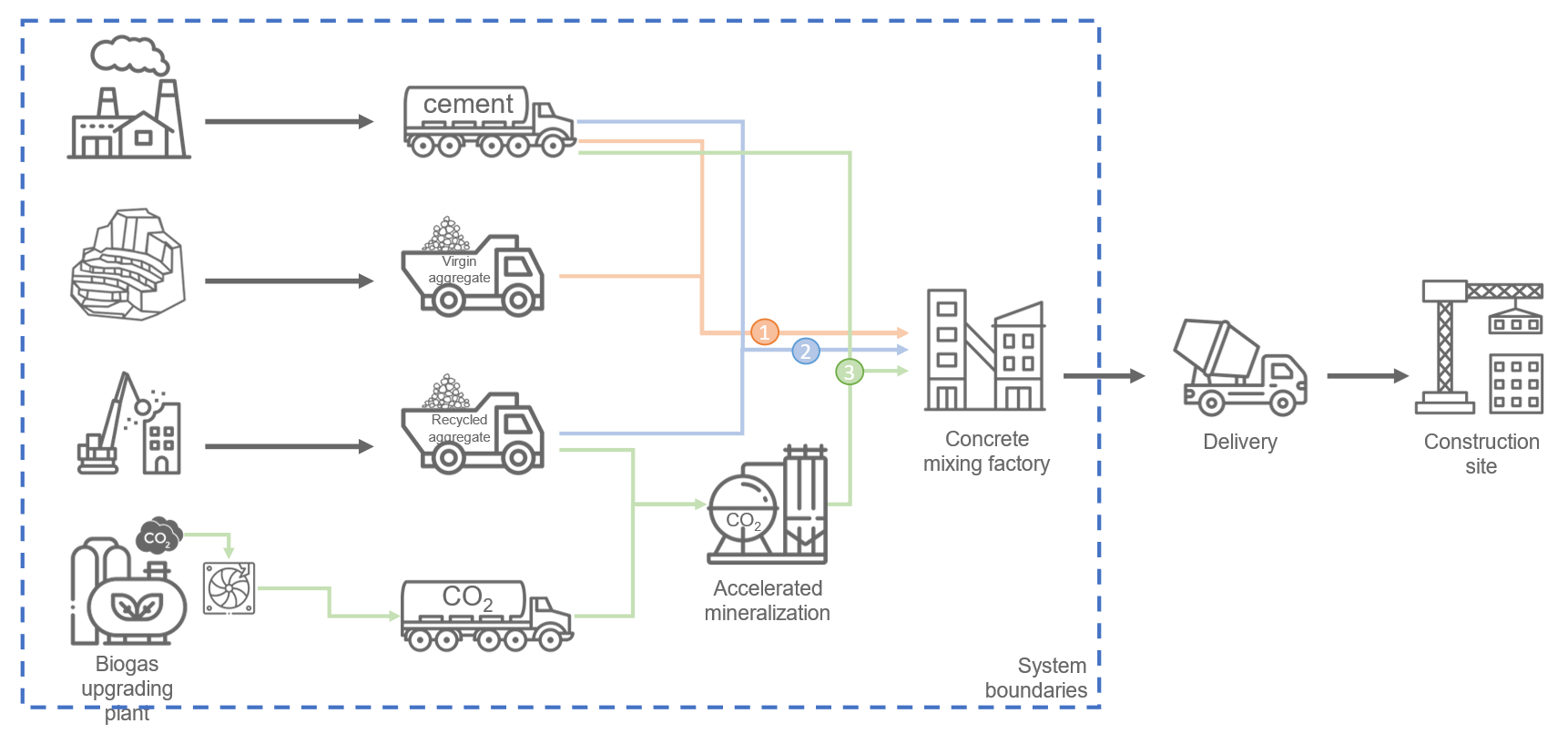News and events
- 2023-09-11
#4 DemoUpBlog

The latest DemoUpBlog post rounds up our research on CO2 storage in concrete with a detailed description of a life-cycle impact assessment (LCA) conducted by PSI researcher Romain Sacchi.
In the LCA he analyzed the production process of concrete with carbonated recycled concrete aggregate and compared it with the production process of concrete with virgin aggregate and concrete with recycled concrete aggregate (RCA).
To learn about the results of the LCA, read the whole blog post here: www.demoupcarma.ethz.ch/en/newseventsblog/blog/Sacchi-LCA-concrete/ - 2023-07-26
Open Public Consultation on CCS+ CO2 accounting methodologies
 Read more...
Read more...The CCS+ Initiative launched for public consultation its first batch of carbon accounting methodologies, developed under Verra’s Verified Carbon Standard (VCS) Program. This is an important step on the journey to unlocking carbon finance for projects that reduce or remove carbon emissions, which are currently not financially viable, yet sorely needed to reach international climate goals. One of the subtasks in WP5, task 1 in the DemoUpCarma project is the development of CO2 accounting methodologies for a range of CCS and CCU solutions leading to emission reductions or removals as a mitigation outcome.
The public consultation for the first set of methodologies is still ongoing. We encourage you to engage with the consultation and contribute to the development of high-quality carbon accounting methodologies by sharing your feedback before July 29. All documents on the public consultation can be found here.
The role of carbon accounting methodologies
Carbon accounting methodologies enable the quantification of emission removals and reductions achieved through CCS, CCU and technical carbon dioxide removal (CDR) solutions. These methodologies will include detailed insights into the technicalities of potential projects, establish project boundaries, set baselines, assess additionality and ultimately quantify the GHG emissions that will be reduced or removed by a specific project.
A wide range of methodologies covering industrial carbon management technologies from the capture, transport, usage and storage part of these value chains are currently being developed under the CCS+ Initiative. Furthermore, complementary market toolsets developed within the Initiative will address specific requirements of climate finance instruments and provide guidance regarding the different implementation processes under, for example, the VCM, European Union or Article 6 of the Paris Agreement.
The proposed methodologies in the ongoing public consultation include:
- Carbon capture and storage framework methodology;
- Direct Air Capture;
- Storage in saline aquifers and,
- A consolidated module for CO2 transport via pipelines, trains, ships/barges and trucks.
The CCS+ Initiative brings together 51 stakeholders to develop a comprehensive carbon accounting infrastructure for technologies that capture, utilize and store, including engineered CDR technologies. The variety of approaches capturing, transporting and storing carbon that, together, could make up the industrial infrastructure of a fully-fledged carbon management economy.
The documents of the public consultation: verra.org/public-consultation-methodology-framework-for-carbon-capture-and-storage/
- 2023-07-19
#3 DemoUpBlog

In the third blog post of the DemoUpBlog, two authors from the Sustainability in Business Lab at ETH Zurich take a look at CO2 transport that could be handled by a pipeline network in the future. In it, they explore how a CO2 pipeline network in Switzerland could be financed and managed. Read more in the current blog post!
- 2023-06-27
#2 DemoUpBlog

Our second blog post of the DemoUpBlog focuses again on concrete. This time, we dive deeper into the microstructural changes occurring in recycled concrete aggregates. The laboratory analyses of the aggregates showed promising results with the potential of reducing the cement content in recycling concrete. Find more about the details in our recent blog post!


